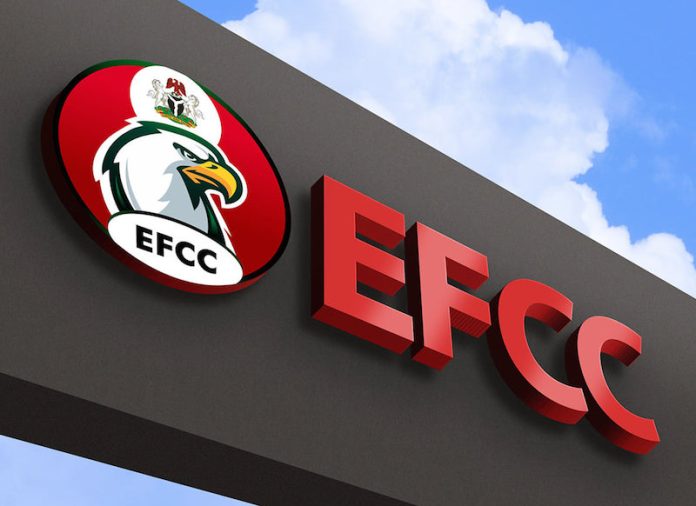Nigeria’s anti-graft agency, the Economic and Financial Crimes Commission (EFCC), has admitted a lack of evidence in the high profile Malabu project probe, signalling a significant turning point in the case.
After investing years and substantial public resources in pursuing the matter at the Federal High Court in Abuja, the EFCC conceded that it could not secure convictions against key individuals and entities accused in the controversial Oil Processing License “OPL 245” transaction.
The entities included former Attorney-General of the Federation, Mohammed Adoke; and multinational companies, Shell and Eni.
The trial, spanning over three years at the FHC, Abuja, involved allegations of fraud, bribery and corruption related to the oil block OPL 245.
The EFCC, having called 10 witnesses to substantiate its case, officially closed its proceedings on October 19, 2023, adding that the unexpected revelation of insufficient evidence against key defendants came in response to a “no-case submission” filed by the accused.
The Malabu oil probe traces its roots to 1998 when Malabu, a Nigerian firm, was controversially awarded the OPL 245 oil assets. In 2011, following a convoluted series of events, the ownership of the assets was transferred to Shell and Eni through an $11 billion agreement, a portion of which prosecutors claimed was used to bribe Nigerian officials.
In a surprising turn of events, the EFCC prosecutor, Offem Uket, acknowledged in a court filing on December 20, 2023, that the evidence presented was insufficient to establish the charges against several defenders, including Mohammed Adoke.
This declaration has implications for the entire case, possibly leading to the discharge and acquittal of the majority of the accused, echoing a similar outcome in an Italian court’s decision in March 2021, where Shell, Eni, and their managers were acquitted.
With the focus now likely shifting to a sole defendant, Rasky Gbinigie, the remaining aspect of the trial centres on allegations that the Malabu company secretary manipulated Malabu’s shares ownership and structure
The EFCC notes that the Malabu epic has been a protracted legal battle, which has underscored the challenge in holding individuals and corporations accountable for alleged wrongdoing in complex transactions, raising questions about the effectiveness of legal efforts to address corruption in Nigeria’s oil sector.


